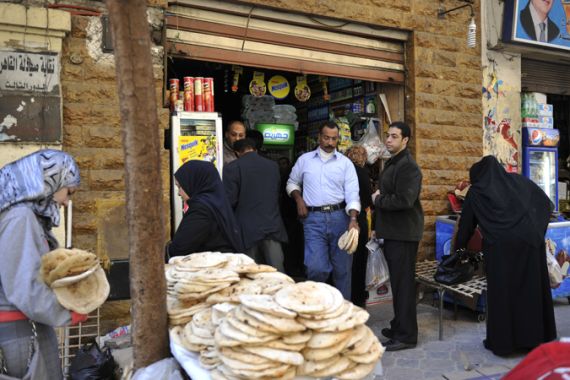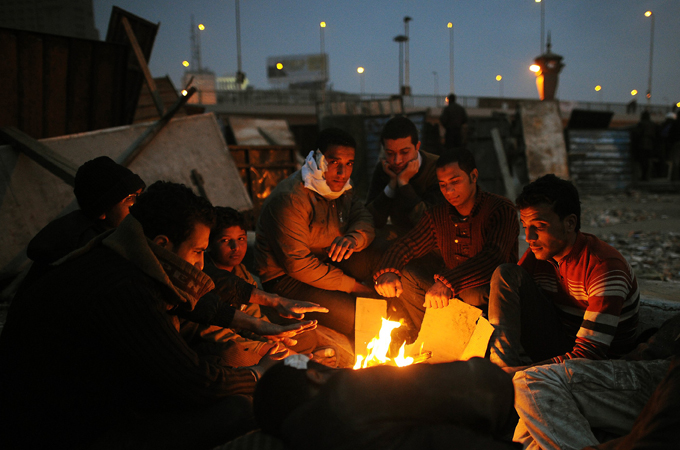Mubarak meets with economy team
Egyptian president meets key ministers as concerns grow over economy following continuing anti-government protests.

 |
| The IMF had warned before protests that youth unemployment levels in Egypt were a ‘ticking time bomb’ [EPA] |
Hosni Mubarak, the embattled Egyptian president, has met ministers responsible for the main economic portfolios in his new government, state media has reported.
The meeting on Saturday included the prime minister, the finance minister, the oil minister and the trade and industry minister. The central bank governor also attended.
The meetings are seen as an effort to tackle the economic damage caused by ongoing anti-government protests throughout the country,
Analysts have said that the uprising is costing the country at least $310m a day.
Al Jazeera’s correspondent, reporting from Cairo, said stores selling basic supplies have begun operating, but many factories in the major cities have been shutdown for days.
“Street vendors and convenience stores are open, but the cost of basic goods like bread are rising,” he said.
Banks have also been closed for a week but the government expects some banks will start offering limited services on Sunday.
State media said the stock market would not now open on Monday as planned.
Despite it being peak tourist season, Ahmad Shafiq, the prime minister, said in a news conference on Saturday that one million visitors have fled the country.
Shafiq sought to downplay the situation, saying that the protests are “normal” and that it is a “process other countries have experienced”.
He also told state television that the government is working as it should.
“For everyday that goes stability returns and we are more hopeful. We no longer see the events happening like last Friday,” he said.
His comments cames as tens of thousands of people in Cairo, Alexandria and other cities continued to call for the resignation of Mubarak.
‘Very serious’
Samir Radwan, the finance minister, said the economic damage was “very serious” and that he had briefed the International Monetary Fund (IMF) and the World Bank.
Just two days before the protests began, the IMF warned of dangerously elevated unemployment levels in Egypt, highlighting high rates of unemployment among young people.
Dominique Strauss-Kahn, the IMF managing director, said on Tuesday that such levels created a “ticking time bomb” that could politically explode.
While he declined to comment specifically on the protests, Strauss-Kahn said, “clearly the situation in Egypt is the kind of situation that could have been expected not only in Egypt, when you see the problem created by the high level of unemployment”.
The IMF expects nearly 10 million jobs are needed in Egypt – more than 12 per cent of the country’s population – and nations such as Jordan, Morocco, Syria and Lebanon will require millions more.
“Unemployment remains too high,” and Egypt needs to “focus on labour-intensive growth,” said regional IMF officials Ratna Sahay and Alan MacArthur.
“To make major inroads into unemployment will require tackling labour market inefficiencies,” they said in a statement.
Rising food prices
Adding to its economic burdens, the IMF officials said Egypt faces a monetary policy dilemma as inflation picks up.
Although down from June 2008 highs of nearly 25 per cent, the annual rise in consumer prices has still hit over 10 per cent in recent weeks.
Strauss-Kahn said rising food prices could also have “potentially devastating consequences,” and the IMF was ready to help Egypt.
The Egyptian government is reportedly setting aside $861m as compensation for those hit by the protests.
“The government hopes that these compensations will help to ensure the economic stability of the citizens,” Radwan told state media.
He added the compensation requests will be accepted from the citizens of the most affected regions and owners of businesses destroyed during the unrest.